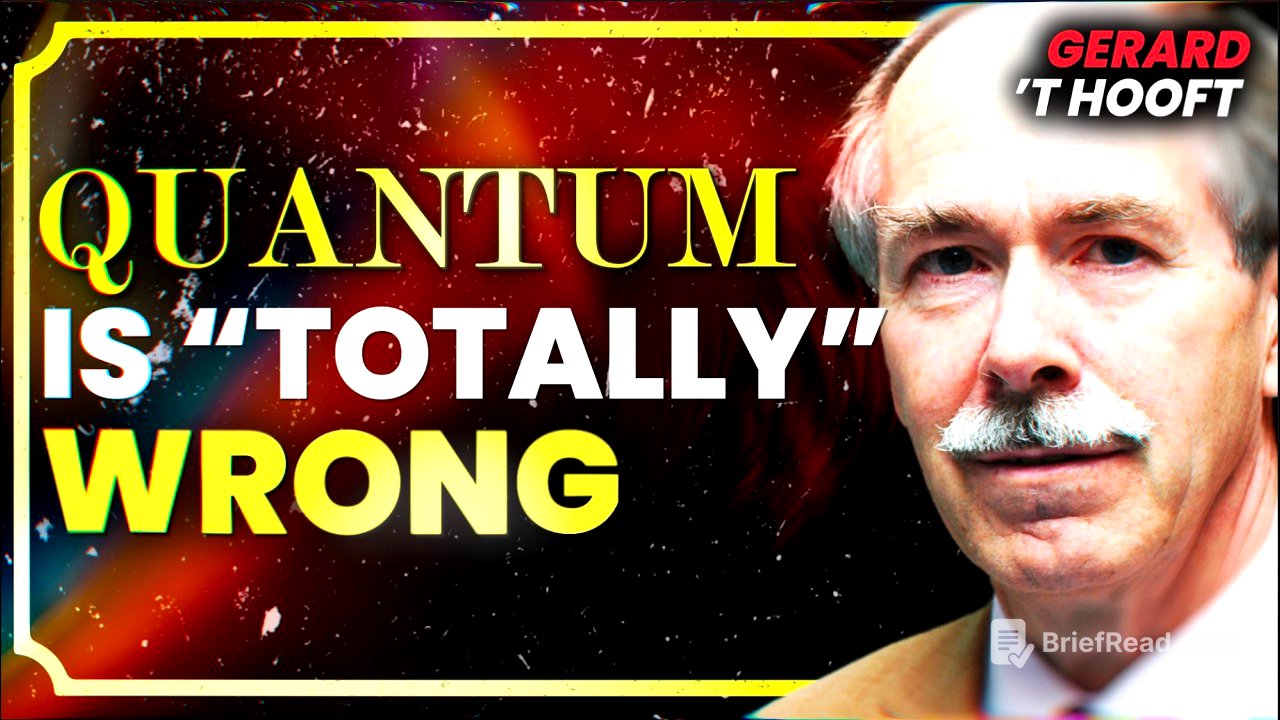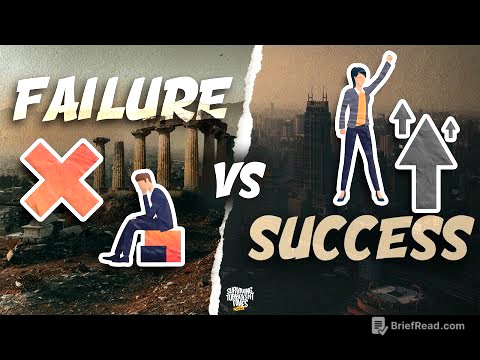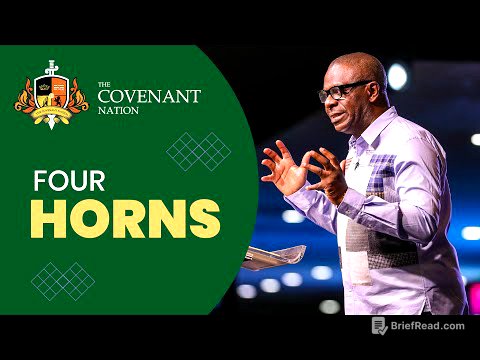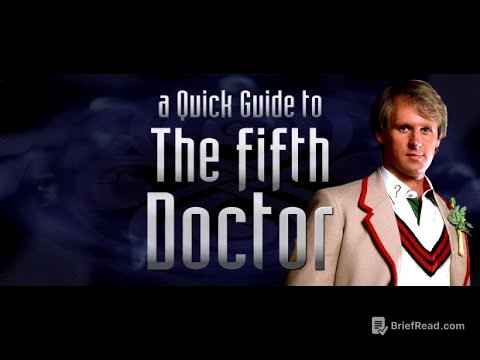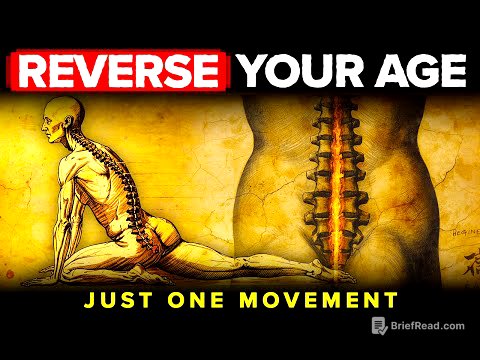TLDR;
In this episode of Theories of Everything, Curt Jaimungal interviews Nobel laureate Professor Gerard 't Hooft, who proposes a deterministic view of reality, contrasting it with the probabilistic nature of quantum mechanics. 't Hooft suggests that quantum mechanics is merely a tool to handle our ignorance of the underlying deterministic processes, likening reality to a cosmic pinball machine. The conversation explores why unconventional theories often gain more traction than simpler ones, delves into the philosophy of hidden variables, and examines 't Hooft's cellular automata approach to physics.
- Quantum mechanics provides statistical answers, but the real world is deterministic.
- The more outlandish a theory, the easier it is for physicists to accept.
- The universe operates on deterministic laws, with no superposition of states.
Introduction [0:00]
Professor Gerard 't Hooft introduces his perspective that quantum mechanics is a construct to deal with our inability to track all deterministic processes, comparing reality to a cosmic pinball machine. He posits that there are no real numbers or superposition, only discrete cellular automata updating in quantized steps. The discussion aims to explore why standard physics might be backward, challenging the notion of particles existing in multiple states and advocating for a deterministic universe.
Why Crazier Proposals Get Accepted [1:12]
Professor 't Hooft observes that unconventional theories often receive more support than simpler ones. He recalls his experience with renormalization, where his idea of using fractional dimensions was readily accepted, while his deterministic views on quantum mechanics faced numerous objections. He attributes this to the fact that more fantastic ideas can generate excitement and appear to work initially, making them more appealing despite their complexity.
Frustrations with Quantum Physics [5:00]
Professor 't Hooft expresses his frustration with the statistical nature of quantum mechanics, arguing that it provides probabilistic predictions rather than definitive answers about the state of reality. He believes that a correct theory should predict the exact outcome of every particle interaction if initial data were known with mathematical precision. While acknowledging the practical utility of quantum mechanics, he asserts that it is fundamentally incorrect because it doesn't describe the underlying deterministic reality.
Quantum Theory is "Totally Wrong" [9:34]
Professor 't Hooft clarifies his statement that quantum theory is "totally wrong" by explaining that the theory never discusses generally existing situations with 100% probability. He contrasts this with his belief that a correct theory should provide precise outcomes, not statistical distributions, even with precise initial conditions. He aligns his views with the philosophy of hidden variable theories, emphasizing that probabilistic outcomes arise from our inability to perform precise calculations.
Psi-Ontic vs. Psi-Epistemic [12:45]
Professor 't Hooft dismisses interpretations of quantum mechanics involving multiple realities, such as the many-worlds theory, as untrue. He argues that even a deterministic theory would yield statistical predictions due to computational limitations. He emphasizes that hidden variable theories suggest variables exist that we cannot currently identify but which operate with certainty, not with superpositions of possibilities.
Penrose Agrees Quantum Theory is Wrong [15:07]
Professor 't Hooft acknowledges Roger Penrose's similar view that quantum theory is wrong, though he often disagrees with Penrose's specific theories. 't Hooft reiterates his belief that the ultimate theory of nature will involve only variables that operate with certainty, rejecting the concept of superposition, such as a cat being both dead and alive simultaneously. He believes that our current understanding is too imprecise to predict outcomes with certainty.
No Superposition [17:00]
Professor 't Hooft reinforces his claim that the true equations of physics will not involve superposition. He argues that the idea of particles, atoms, and molecules existing in wave functions is incorrect. Instead, he suggests that these entities obey deterministic laws that lead to certain outcomes if the initial state is known with infinite certainty.
Quantum Mechanics as a Language [22:07]
Professor 't Hooft describes quantum mechanics as epistemic, meaning it describes our knowledge rather than reality itself. He believes the wave function is a way to describe probability distributions because we lack a better alternative. The real reason for these distributions is our inability to know the initial state with infinite precision, which would be necessary for a precise, non-probabilistic answer.
Cellular Automata Approach [22:57]
Professor 't Hooft explains his cellular automata approach, where the world is seen as a collection of interacting automata. These automata influence each other primarily through nearest-neighbor interactions. He uses the analogy of a pinball machine to illustrate how deterministic laws can produce seemingly random outcomes due to our inability to calculate with infinite precision. The rules governing these interactions are simple and fixed, allowing for complex phenomena to emerge.
Discreteness and Integers [30:02]
Professor 't Hooft emphasizes the importance of discreteness in his model, arguing against the existence of real numbers in physics. He believes that the ultimate theory will depend only on integers, not even rational numbers, to ensure determinism without statistical approximations. This discreteness would mean that even coupling strengths between standard model particles are described by integers.
Superdeterminism [33:27]
Professor 't Hooft discusses superdeterminism, aligning with the view that the laws of nature conspire to make us believe quantum mechanics is real when it is merely a statistical phenomenon. He believes that deterministic equations describe everything, from atoms to universes, and rejects the idea of divine intervention influencing events. He clarifies that superdeterminism, in his view, is simply determinism through and through, with no room for probabilistic distributions.
Bell's Theorem and Statistical Independence [46:08]
Professor 't Hooft critiques Bell's theorem, arguing that Bell made an elementary mistake by assuming that past events are independent of present actions. He asserts that the decisions made by observers in Bell's experiment are influenced by past events, thus violating the assumption of statistical independence. He believes that Bell's assumption disproves his approach to disproving determinism in quantum mechanics.
Experimental Science and Determinism [49:26]
Professor 't Hooft addresses the critique that superdeterminism renders experimental science meaningless, arguing that it merely makes it harder. He explains that the interpretation of quantum equations changes, suggesting that the source of these equations is different from what people believe. He uses the example of mice predisposed to cancer to illustrate how deterministic theories can still account for randomness in practice.
Recap of Quantum Mechanics View [55:16]
Professor 't Hooft summarizes his view of quantum mechanics, stating that hidden variables determine everything with certainty. While it is impossible to compute such a model with infinite precision in practice, the theory can help understand phenomena and the origins of laws. He emphasizes that the standard model of elementary particles should be researched using deterministic phenomena.
Quantum Gravity [58:13]
Professor 't Hooft believes gravity should be treated like other interactions, controlled by deterministic laws. He acknowledges the difficulty in conceiving how deterministic laws could work in gravity but sees no fundamental reason why it should be impossible. He suggests that one must be intelligent, smart, resourceful, and aided by clever experiments to bridge the gap between elementary particles and gravitational particles.
Advice to Students [1:01:17]
Professor 't Hooft advises students not to be overly concerned about disagreeing with existing opinions. He suggests that combining different phenomena can lead to new tracks in research. He encourages students to question what they read and to understand why certain claims are made, rather than blindly accepting them.
Elementary vs. Composite Particles [1:04:48]
Professor 't Hooft discusses the distinction between elementary and composite particles, defining a composite particle as one that is useful to consider as such. He describes an elementary particle as one for which no composite ingredients can be identified. He emphasizes the need for theories with more certainty and introduces the analogy of a grandfather's clock to combine quantum mechanics with deterministic behavior.
Quantum Clones and Black Holes [1:08:24]
Professor 't Hooft presents his theory of mirrors at the horizon of black holes, distinguishing it from other models. He suggests that the physics happening within a black hole is not physical at all but rather a boundary condition of the horizon. He proposes that identifying two regions of space-time as clones can help maintain determinism and avoid the information paradox.
Current Research [1:18:34]
Professor 't Hooft shares that he is currently working on the black hole problem, aiming to better understand the conical singularity at the origin and how standard model particles interact with black holes. He wants to develop a textbook-like explanation of the theory, making it as clear as possible.
Asymptotic Freedom [1:20:17]
Professor 't Hooft recounts his experience with asymptotic freedom, a property of theories where coupling constants decrease at high energies. He recalls a conversation with Professor Kurt Symanzik, who encouraged him to publish his findings quickly. However, due to other commitments, 't Hooft postponed writing the paper, and Gross, Wilczek, and Pollitzer independently arrived at the same result.
How to Become a Good Theoretical Physicist [1:23:17]
Professor 't Hooft discusses his program on how to become a good theoretical physicist, emphasizing the importance of understanding standard physics, including Newton's laws, Maxwell's equations, and thermodynamics. He advises against discarding old theories without having a better replacement and stresses the need to understand the limits of existing theories like quantum mechanics.
Conclusion [1:27:30]
Professor 't Hooft concludes by expressing his disagreement with approaches that discard established science without offering concrete alternatives. He reiterates his belief that cellular automata can potentially explain the behavior of elementary particles, though the exact rules and calculations remain a significant challenge. He remains optimistic that future discoveries will provide answers to these complex questions.
